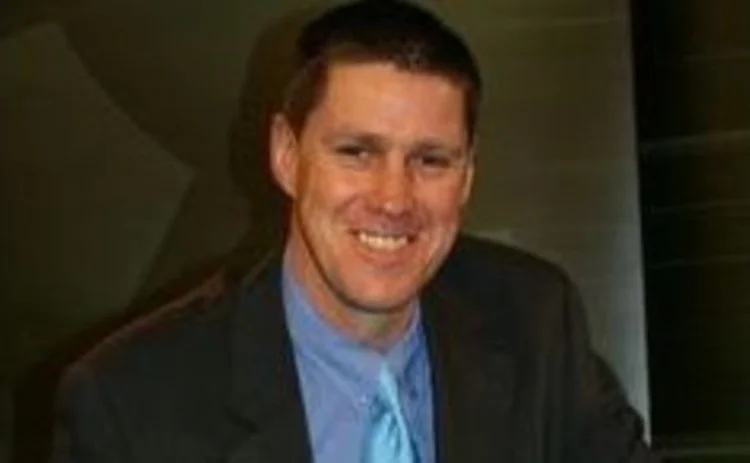March 2013: It Takes a Thief to Catch a Thief

The parallels that exist between the regulatory bodies responsible for monitoring and regulating the global capital markets, and the Union Cycliste Internationale (UCI), the Aigle, Switzerland-based cycling governing body established in 1900 that now oversees all aspects of international cycling, are obvious. Both groups are clearly underfunded, both are patently one step behind the wrongdoers they are responsible for overseeing, and both have been relatively ineffective to date.
Until now, that is. The UCI, still chronically in need of new blood—pun intended—and sweeping reform, seems to have turned the corner on the organized doping front thanks to improved technology, cooperation between various countries’ anti-doping agencies, and advice from former professional cyclists, many of whom have since admitted to sophisticated doping practices during their racing years, even though the majority were never caught. Years ago, while I was racing in South Africa, there were rumors circulating about a local pro who was dabbling in Equipoise, an anabolic steroid developed primarily for use in horses, designed to, among other things, enhance protein synthesis and stimulate the release of erythropoietin (EPO) in the kidneys. In other words it was perfect for cycling. I remember clearly during races, guys in the bunch neighing and whinnying like excited horses whenever he was in close proximity. The point is, this guy wasn’t so much a step ahead of the authorities as he was a country mile, given that he was never going to fail a test for a substance no one in their right mind would ever use—even though there have since been a number of positive tests for it around the world.
In his monthly column, James Rundle comments on the recent UK court ruling against Swift Trade and its layering activities that, when investigated, led to the Canadian day trader closing its doors, before finally receiving an £8 million ($12 million) fine from the UK’s Financial Services Authority for its troubles. James goes on to describe how the US Securities and Exchange Commission (SEC) has enlisted Redbank, NJ-based proprietary high-frequency trading firm Tradeworx to build a trade-monitoring system that the SEC intends to use to identify market abuses. This move is commendable and is clearly a step in the right direction for the SEC, but why stop there? Surely, what’s really needed to sharpen its claws is the establishment of an elite core of trading specialists—ideally ones that flouted the market regulations during the course of their careers—who have first-hand knowledge of how to identify illegal opportunities and exploit loopholes in the current legislation governing the US capital markets. Only when the SEC enlists the help of a “thief” to catch a “thief” will it enjoy any appreciable success in this respect.
Only users who have a paid subscription or are part of a corporate subscription are able to print or copy content.
To access these options, along with all other subscription benefits, please contact info@waterstechnology.com or view our subscription options here: https://subscriptions.waterstechnology.com/subscribe
You are currently unable to print this content. Please contact info@waterstechnology.com to find out more.
You are currently unable to copy this content. Please contact info@waterstechnology.com to find out more.
Copyright Infopro Digital Limited. All rights reserved.
As outlined in our terms and conditions, https://www.infopro-digital.com/terms-and-conditions/subscriptions/ (point 2.4), printing is limited to a single copy.
If you would like to purchase additional rights please email info@waterstechnology.com
Copyright Infopro Digital Limited. All rights reserved.
You may share this content using our article tools. As outlined in our terms and conditions, https://www.infopro-digital.com/terms-and-conditions/subscriptions/ (clause 2.4), an Authorised User may only make one copy of the materials for their own personal use. You must also comply with the restrictions in clause 2.5.
If you would like to purchase additional rights please email info@waterstechnology.com
More on Regulation
Esma won’t soften regulatory expectations for cloud and AI
CCP supervisory chair signals heightened scrutiny of third-party risk and operational resilience.
Esma supervision proposals ensnare Bloomberg and Tradeweb
Derivatives and bonds venues would become subject to centralized supervision if the proposed reforms go through.
Cyber insurance premiums dropped unexpectedly in 2025
Competition among carriers drives down premiums, despite increasing frequency and severity of attacks.
Market participants voice concerns as landmark EU AI Act deadline approaches
Come August, the EU’s AI Act will start to sink its teeth into Europe. Despite the short window, financial firms are still wondering how best to comply.
ICE to seek tokenization approval from SEC under existing federal laws
CEO Jeff Sprecher says the new NYSE tokenization initiative is not dependent on the passage of the US Clarity Act.
Why UPIs could spell goodbye for OTC-Isins
Critics warn UK will miss opportunity to simplify transaction reporting if it spurns UPI.
Re-examining Big Tech’s influence over the capital markets
Waters Wrap: A few years ago, it seemed the big cloud providers were positioning themselves to dominate the capital markets tech scene. And then came ChatGPT.
Pressure mounts on Asia to fall in line for T+1
With the US already on a T+1 settlement cycle, and the UK and EU preparing for the shift in 2027, there’s pressure for Asia to follow suit. But moving may involve more risks than expected.








